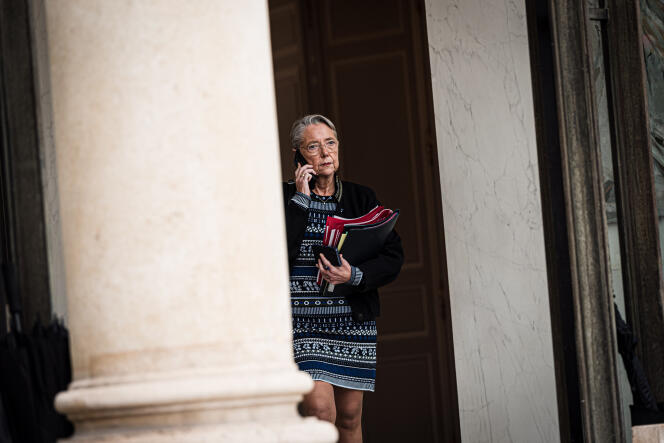


Elisabeth Borne had to read between the lines, understand the presidential undertones and decipher Emmanuel Macron's mood. On Wednesday, January 3, the scheduled Council of Ministers meeting was canceled at the last minute. However, the traditional weekly lunch at the Elysée between the president and his prime minister was maintained. What could this mean?
Paris was buzzing with rumors about a ministerial reshuffle that would target her. Macron reportedly wanted to start afresh in his second five-year term with a change of personnel. He wanted to leave behind the painful episodes of the pension reform and the immigration law, which fractured his majority two weeks ago.
But the head of government was not asked to resign during the meal. "A lot was mentioned, but nothing was said," said a source at the Elysée. The senior civil servant and her team remained trapped in the clouds of presidential uncertainty, hanging on the verdict of the head of state. It was almost torture.
Macron, isolated at La Lanterne (a presidential retreat in Versailles) on January 6 and 7, diligently worked on refining his strategy. Throughout this period, he seemed unaffected by the growing restlessness within his camp. "Looking for the best solution for the country doesn't mean hesitating," said an adviser to the president. On Sunday evening, back in his office, Macron received the prime minister at the Elysée to discuss the flooding in northern France and the cold snap sweeping the country. There was no question of a government reshuffle. According to L'Opinion, Borne had even been invited to a defense council meeting on January 9, along with several other ministers, to discuss the subject of separatism.
But this lunch meeting between the president and the head of government did not rule out the possibility of her departure. Monday "is another day," they whispered at the Elysée. While it remained "possible," Borne's continuation as prime minister was "not the most likely scenario," according to the president's entourage. It didn't matter that the situation was extremely complicated for her. "Politics is hard," retorted the Elysée.
Did this mean the former prefect no longer ticked the right boxes? Before parting ways with her, shouldn't Macron wait, as some in the presidential camp are suggesting, for the outcome of the perilous European elections in June, in which the Rassemblement National (RN, far right) had taken a lead, according to the polls? Should the Macron-supporting list fail, the president would have to draw lessons from the vote. Could he afford a third reshuffle in less than a year?
You have 65% of this article left to read. The rest is for subscribers only.
